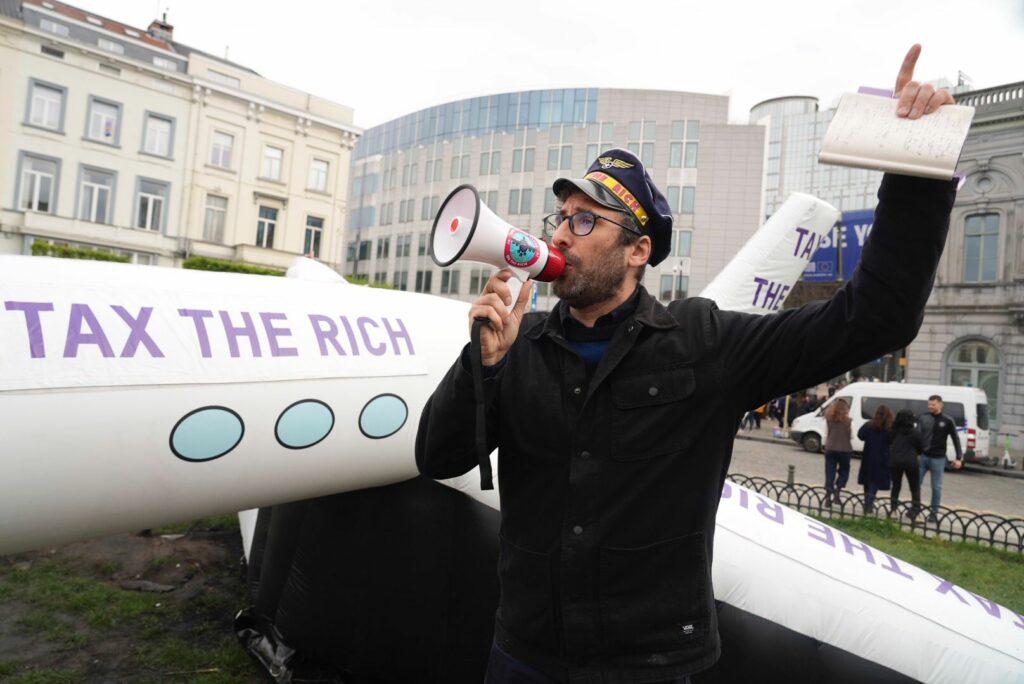Three non-profit organisations placed an inflatable private jet opposite the European Parliament on the Place du Luxembourg on Thursday to protest against EU inaction on "Europe’s wealthiest and biggest polluters." The demonstration was attended by climate activists.
The initiative (organised by Oxfam EU, Avaaz, and WeMove Europe) aims to pressure EU policymakers to take significant steps against Europe's "super-rich". It draws attention to a Citizens Initiative for a European wealth tax, which has so far received almost 200,000 signatures. The proposal has support from members of civil society, scientists, and elected representatives. If it reaches 1 million signatures the European Commission will be obliged to act on the proposal.
The three NGOs are proposing a tax on the richest 1% of residents in the EU. This could take the form of a progressive wealth tax on the EU’s multi-millionaires and billionaires at a rate of 2% on net wealth above €4.6 million, 3% on net wealth over €45.7 million, and 5% on wealth above €913 million.
An Oxfam report published on Thursday states that "the richest 1% is hoarding half of all financial wealth in Europe. Moreover, a person from the richest 1% emits on average 14 times more carbon (CO2) than a person in the bottom 50%."
Tax and inequality expert at Oxfam Julien Desiderio says that the proposal could "generate approximately up to €286 billion a year in the EU – equivalent to the GDP of a country like Finland." Funds generated could help the EU to reduce inequalities and meet climate goals.

A group of young climate activists. Credit: Eric de Mildt - Oxfam, WeMove ans Avaaz
A popular proposal
"Nearly 7 in 10 Europeans agree on taxing the rich to support the poor. At a time of crises and falling purchasing power, people understand that it's no longer (only) up to them to pay the cost of crises," Desiderio told The Brussels Times.
He highlights a tax loophole in Belgium, which doesn't have a capital gains tax on shares. "When you buy and sell company shares there is no taxation. It's a bit of a tax loophole that mainly benefits the richest people, given that the richest 10% own 80% of shares." At the same time labour is heavily taxed – up to 53% for a Belgian employee compared with an EU average of 44.1%.
Unsurprisingly, the proposal is not without opposition from those who would be affected and critics say that it would prompt wealthier people to leave the EU and reinvest their money elsewhere.
"We shouldn't underestimate moves to avoid taxation, but nor should we overestimate it. It's not only tax levels that make someone decide to stay in a country and do business; other important factors are infrastructure or education – which provide a skilled workforce," Desiderio said.
In his view, limiting the impact of climate change and promoting social justice will inevitably involve taxation. He is wary of "relying on the philanthropy of the wealthy" and stresses the importance of collective decisions to maintain a framework of general interest. Ultimately, it needs to be the State that finances major projects for the public good, even though these may be costly. Adapting to climate change, building hospitals and schools all come with a cost that must be financed through tax.

